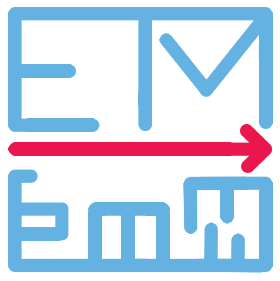Get Ready: WHO Releases Expanded, Electronic ICD-11

The World Health Organization (WHO) released an initial version of its 11th International Classification of Diseases and Related Health Problems (ICD-11). Vastly larger than ICD-10 and fully electronic, ICD-11 makes significant changes to the classification of diseases — changes that will ultimately have a major impact on medical billing.
While ICD-11 is officially effective January 1, 2022, the WHO plans to formally present ICD-11 in May 2019 at the World Health Assembly. The WHO released ICD-11 publicly on June 18 of this year to give stakeholders (including California workers’ comp professionals) the chance to start planning for the transition.
ICD-11: What’s New
ICD-11, available on the WHO website, makes several noteworthy updates to the current WHO disease classification system. Most significantly, ICD-11 is completely electronic. As medicine in general (and workers’ comp in particular) edge ever closer to complete paperlessness, the WHO is ditching the printed ICD.
The move to electronic format is well-timed; ICD-11 comprises about 55,000 codes, a nearly fourfold increase from ICD-10 approximate 14,000 codes. Among ICD-11’s other notable updates:
- A new focus on antimicrobial resistance: ICD-11 joins the fight against global “superbugs” by aligning with the WHO’s Global Antimicrobial Resistance Surveillance System (GLASS).
- Information on traditional medicine: ICD-11 includes optional diagnosis codes for conditions described in ancient Chinese, Japanese, and Korean medicinal practices, such as disruptions in the system of meridians recognized by acupuncturists.
- A new outlook on gender: To combat the stigma of gender incongruence as a mental disorder, the WHO removed all gender disorder diagnoses from the chapter on mental health. ICD-11 lists all such information in a new chapter on sexual health.
- The inclusion of gaming disorders: ICD-11 recognizes excessive preoccupation with video games as a behavioral disorder “characterized by impaired control over gaming, increasing priority given to gaming over other activities to the extent that gaming takes precedence over other interests and daily activities, and continuation or escalation of gaming despite the occurrence of negative consequences.”
Providers, you know what this means for you: serious effort will be required to make the transition to ICD-11. New codes, entirely new code patterns, and major reclassification of various injuries and conditions will take some getting used to.
ICD in Workers’ Comp
The Centers for Medicare and Medicaid Services (CMS) initially adopted and revised the WHO’s international ICD-10 for use in the United States, adding almost 55,000 additional codes to the roughly 14,000 code international version. The US version of ICD-10, known as ICD-10-CM, is comprised of roughly 70,000 codes in total.
Effective October 1, 2015, CMS mandated that all healthcare providers use ICD-10-CM diagnosis codes.
In version 1.2.2 of the Medical Billing and Payment Guide, California’s Division of Workers’ Compensation (DWC) adopted ICD-10-CM for all medical bills (along with a separate ICD for inpatient hospital services, ICD-10-PCS).
The CMS and DWC have yet to announce if they plan to adopt ICD-11, or how soon after January 1, 2022 providers will have to include ICD-11 diagnostic codes in bills for treating injured workers.
When the DWC adopted ICD-10 in 2015, there was a 12-month grace period in which claims administrators could not deny payment solely due to insufficient specificity in listing the ICD-10 code. That said, we have no word yet on whether the DWC plans similar phasing in measures for ICD-11.
We’ll keep our readers updated of any developments in the ICD-11 saga, including any information regarding implementation in workers’ comp. And of course, when ICD-11 takes effect, we’ll update our Billing Software so daisyBill clients won’t miss a beat.
daisyBill makes ICD easy. Our Billing Software automatically populates the correct ICD-10 code based on the date of service. And there’s much, much more. Sign up for a free demonstration today.
REQUEST DEMO
DaisyBill provides content as an insightful service to its readers and clients. It does not offer legal advice and cannot guarantee the accuracy or suitability of its content for a particular purpose.

%20rounded.png)